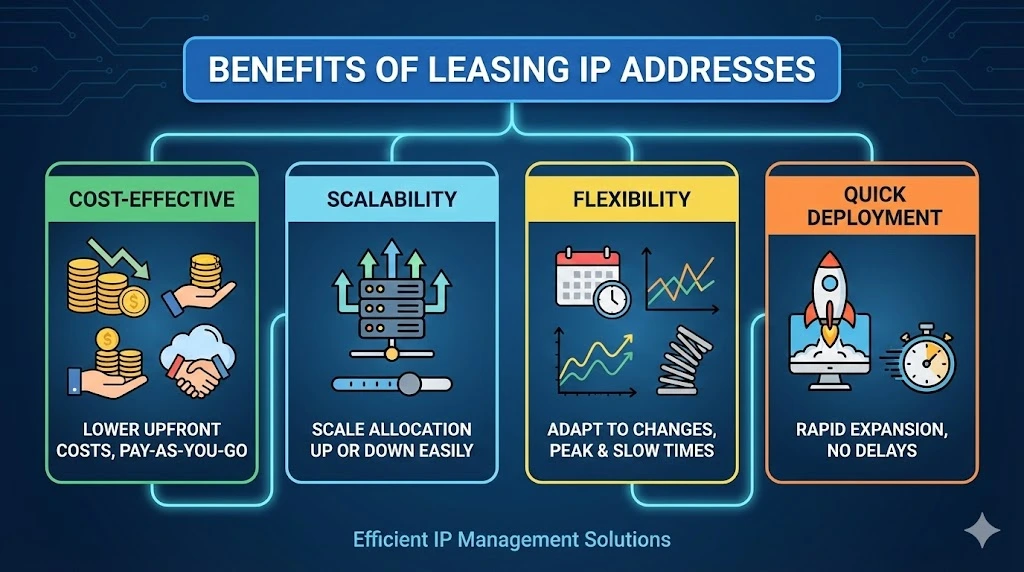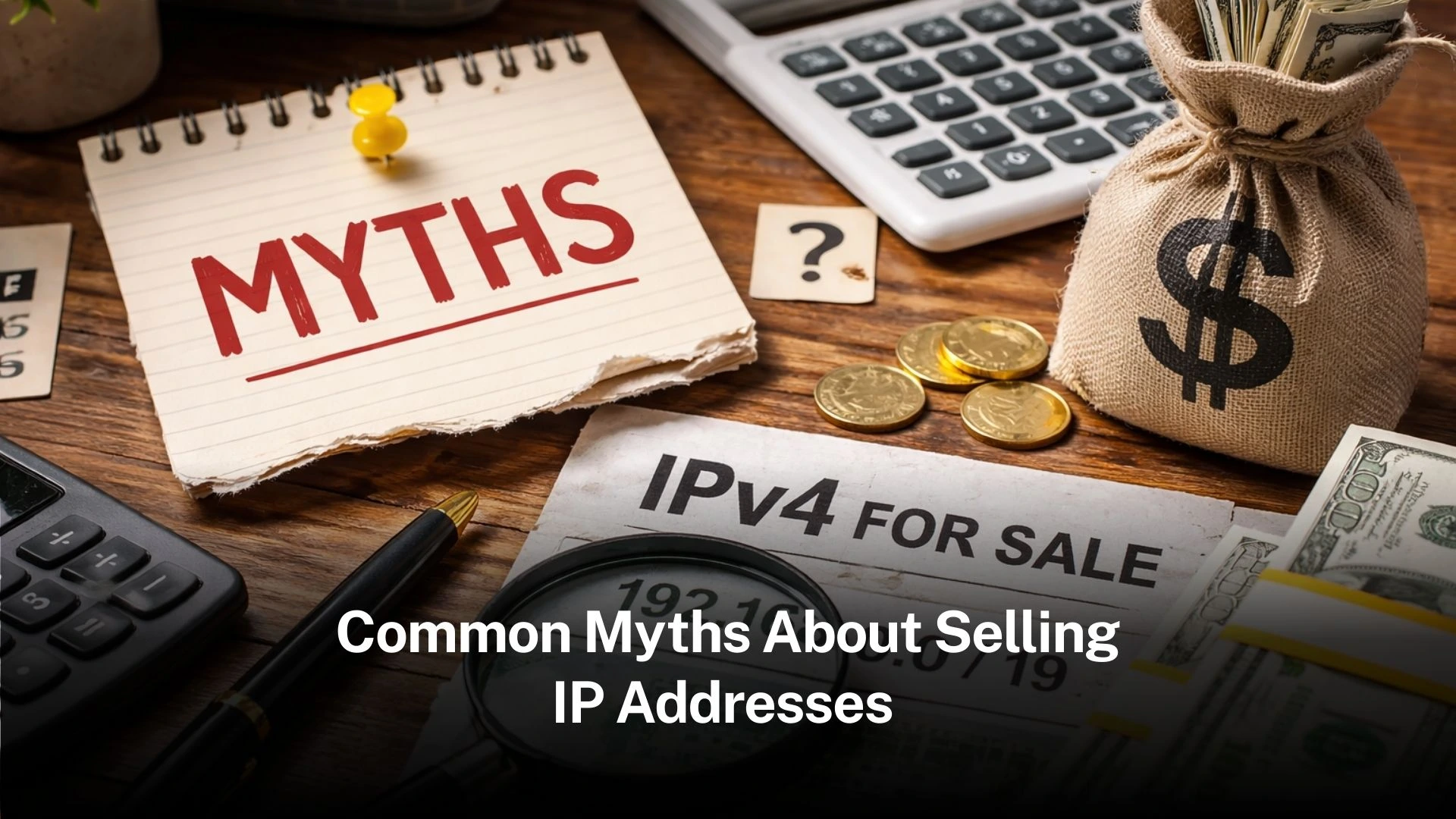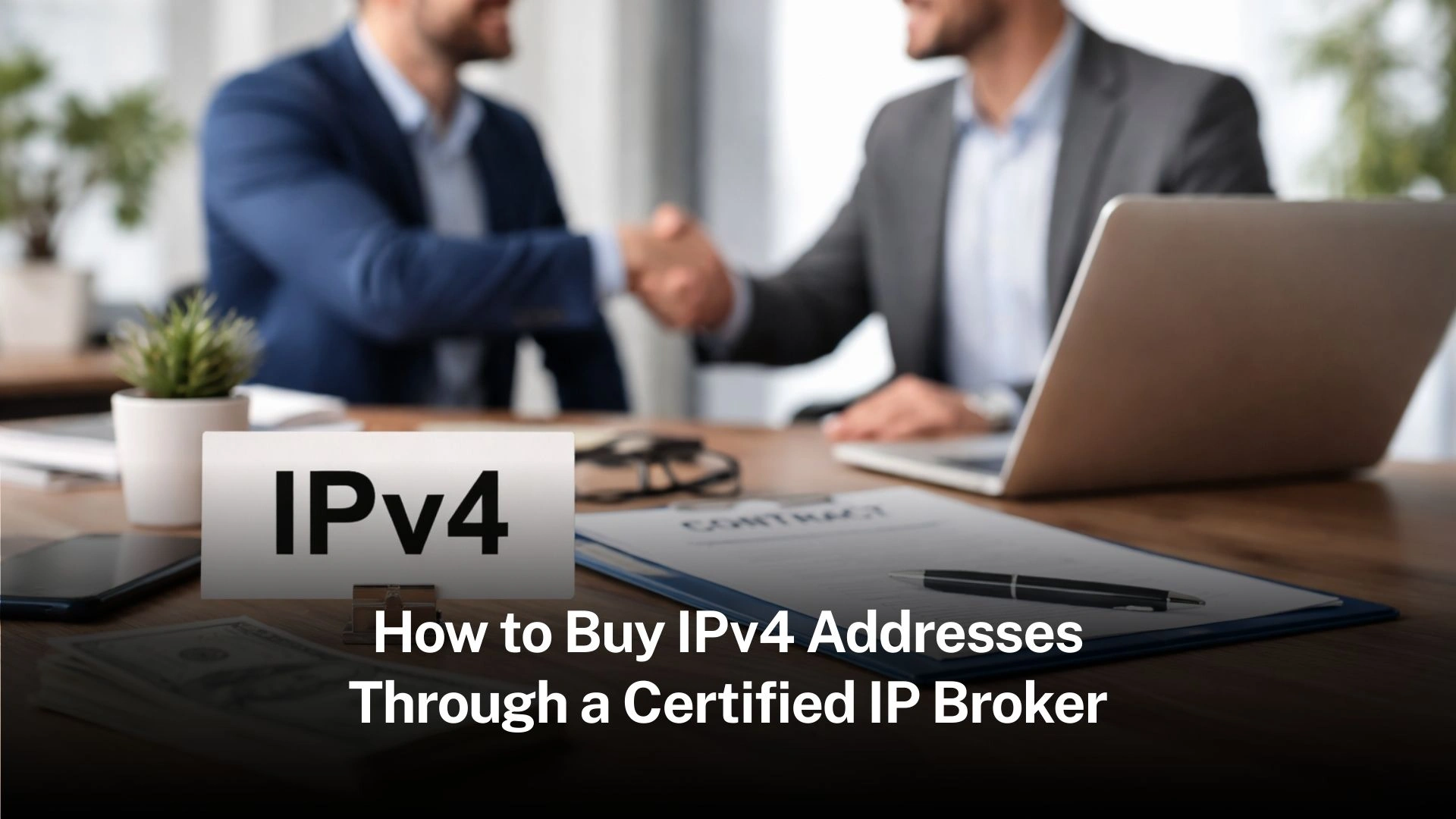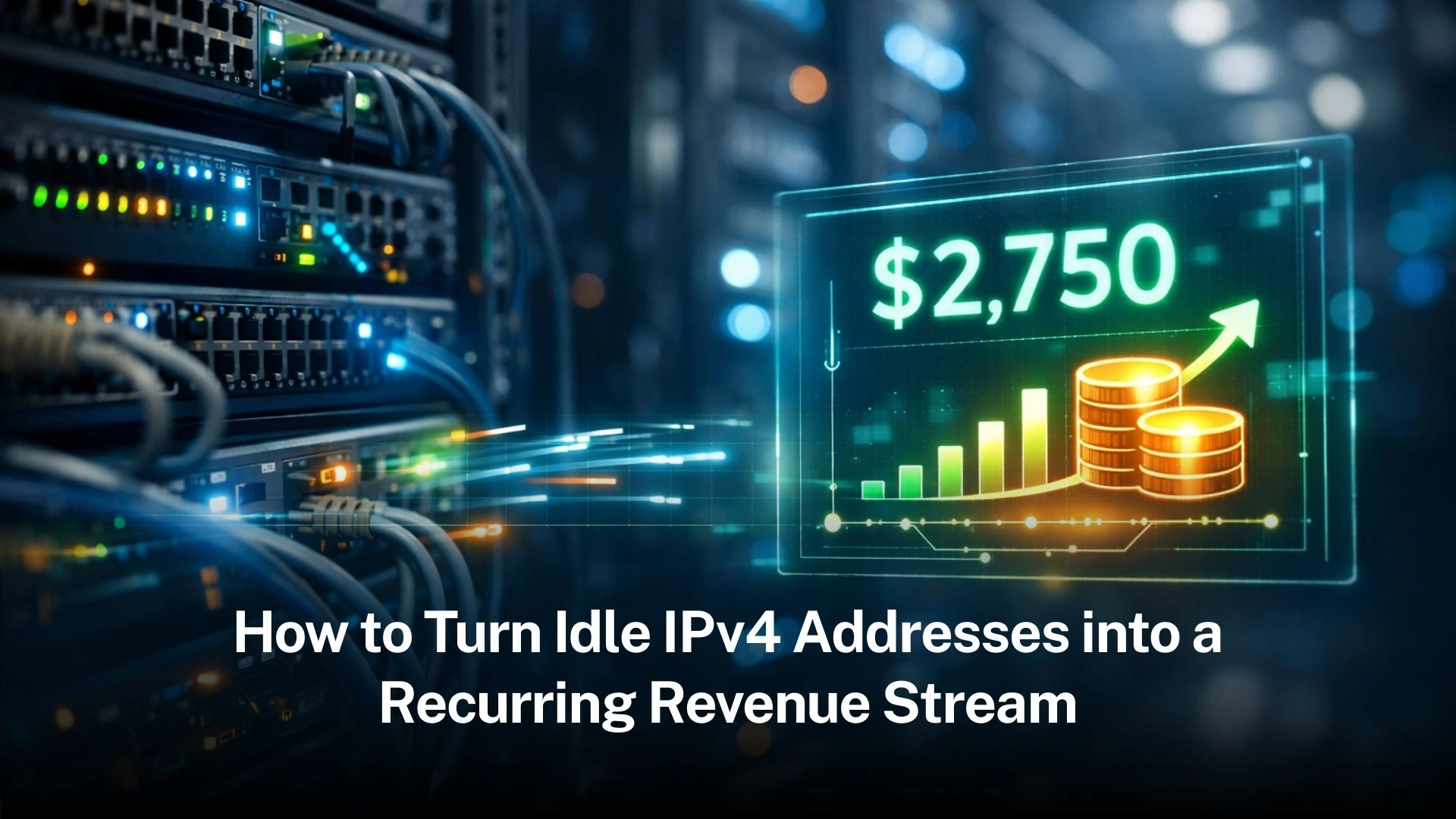IP Address Leasing: How to lease IP Addresses

The digital world we navigate today relies heavily on IP addresses, unique identifiers assigned to devices connected to the internet or a local network. As the demand for IP addresses continues to rise, businesses and individuals are exploring various options to secure the necessary resources. One increasingly popular method is IP address leasing. This article delves into the concept of leasing IP addresses, its benefits, and why it has become a viable solution for many.
Table of Contents
What is IP Address Leasing?
IP address leasing involves renting IP addresses from a service provider rather than purchasing them outright. This model provides flexibility and scalability, making it an attractive option for businesses with fluctuating or temporary needs. Leasing can be particularly beneficial in managing IPv4 addresses, which are becoming scarce due to the exponential growth of internet-connected devices.
Benefits of Leasing IP Addresses

Cost-effective
Purchasing IP addresses can be a significant investment, especially for small to medium-sized businesses. Leasing offers a more affordable alternative, allowing companies to pay for addresses only when they need them, reducing upfront costs.
Scalability
Businesses often experience changes in their IP address requirements. Leasing allows them to scale their address allocation up or down based on current needs without the long-term commitment of ownership.
Flexibility
IP address leasing provides the flexibility to adapt to market changes and business expansions. Companies can lease additional addresses during peak periods and reduce their usage during slower times.
Quick Deployment
Leasing enables rapid deployment of IP addresses, which is crucial for businesses that need to expand their network quickly or launch new services without delays.
Process of Leasing IP Addresses

1. Assessment of Needs
The first step in leasing IP addresses is to assess the specific requirements of your business. This includes determining the number of addresses needed and the duration of the lease.
2. Choosing a Provider
Select a reliable IP address leasing provider. Companies like LARUS specialize in leasing IPv4 addresses and offer various plans to suit different needs.
3. Signing the Agreement
Once a provider is chosen, you will need to sign a lease agreement. This document outlines the terms of the lease, including duration, cost, and conditions for renewal or termination.
4. Implementation
After the agreement is signed, the provider will allocate the leased IP addresses to your business. These addresses can then be configured on your network, allowing immediate use.
Why Lease IP Addresses?
Address Scarcity
The shortage of IPv4 addresses has made leasing a practical solution. As IPv4 addresses become increasingly scarce, leasing ensures that businesses can still obtain the addresses they need without incurring the high cost of purchasing them.
Transition to IPv6
While IPv6 adoption is growing, many businesses still rely on IPv4. Leasing provides a bridge during this transition, allowing companies to maintain their operations while gradually integrating IPv6.
Regulatory Compliance
Some industries have specific requirements for IP address management. Leasing from a reputable provider can help ensure compliance with these regulations.
Leasing IP addresses is an efficient and flexible solution for businesses needing to manage their network resources effectively. It offers numerous benefits, including cost savings, scalability, and rapid deployment, making it an attractive option in today’s digital landscape. As the demand for IP addresses continues to grow, leasing provides a practical alternative to purchasing, ensuring that businesses can meet their connectivity needs without substantial financial investment.
For more information on IP address leasing and to explore available options, talk to us.
Trusted IPv4 Leasing for Business Growth
Get enterprise-grade IPv4 space quickly, with seamless deployment and end-to-end management.
Get Started with i.leaseFAQs
How much does it cost to lease an IPv4 address?
The average market rate for leasing an IPv4 address typically ranges from $0.35 to $0.60 per IP per month, depending on the block size (e.g., /24 vs. /16) and the lease duration. Larger blocks and longer contracts often secure lower per-IP rates.
How quickly can I use the leased IPs?
Unlike buying IPs, which can take weeks to transfer, leasing is almost instant. Once the agreement is signed and the Letter of Authorization (LOA) is issued, you can typically start advertising the IPs on your network within 24 to 48 hours.
Can I use leased IPs for Email Marketing (SMTP)
Yes, but most providers require you to state this use case upfront. Reputable lessors will check the “IP Reputation” before leasing to you and expect you to maintain a clean reputation. If you use the IPs for spam, the lessor reserves the right to terminate the contract immediately to protect the asset’s value.
Related Posts

Common Myths About Selling IP Addresses
The IPv4 secondary market is often shrouded in mystery, leading many organizations to sit on valuable digital assets because they fear the perceived complexity or legal “gray areas.” As IPv4 exhaustion becomes a permanent reality, the value of these addresses has skyrocketed, yet misconceptions continue to stall potential transactions. At i.lease, powered by the real-world expertise of LARUS, we’ve seen how these myths prevent companies from unlocking significant capital.Read more Related Posts Common Myths About Selling IP Addresses The IPv4 secondary market is often shrouded in mystery, leading many organizations to sit on valuable digital assets because they Read more How to buy IPv4 addresses through a certified IP broker Buying IPv4 space requires policy compliance, verified need, and registry approval, making certified IP brokers essential guides through complex global Read more What happens when IP resources are mismanaged Poor IP resource management can lead to outages, security breaches, blacklisting, legal exposure and reputational damage across networks and business Read more .related-post {} .related-post .post-list { text-align: left; } .related-post .post-list .item { margin: 5px; padding: 10px; } .related-post .headline { font-size: 18px !important; color: #999999 !important; } .related-post .post-list .item .post_thumb { max-height: 220px; margin: 10px 0px; padding: 0px; display: block; } .related-post .post-list .item .post_title { font-size: 16px; color: #3f3f3f; margin: 10px 0px; padding: 0px; display: block; text-decoration: none; } .related-post .post-list .item .post_excerpt { font-size: 13px; color: #3f3f3f; margin: 10px 0px; padding: 0px; display: block; text-decoration: none; } @media only screen and (min-width: 1024px) { .related-post .post-list .item { width: 30%; } } @media only screen and (min-width: 768px) and (max-width: 1023px) { .related-post .post-list .item { width: 90%; } } @media only screen and (min-width: 0px) and (max-width: 767px) { .related-post .post-list .item { width: 90%; } }

How to buy IPv4 addresses through a certified IP broker
Buying IPv4 space requires policy compliance, verified need, and registry approval, making certified IP brokers essential guides through complex global transfers. IPv4 transactions are regulated transfers, not simple purchases — registries must approve documentation, justification and registration changes. Certified brokers reduce risk and delay by aligning buyers with registry policy, routing legitimacy and cross-region requirements. Why companies still need to buy IPv4 addresses The global supply of IPv4 addressesRead more Related Posts Common Myths About Selling IP Addresses The IPv4 secondary market is often shrouded in mystery, leading many organizations to sit on valuable digital assets because they Read more How to buy IPv4 addresses through a certified IP broker Buying IPv4 space requires policy compliance, verified need, and registry approval, making certified IP brokers essential guides through complex global Read more What happens when IP resources are mismanaged Poor IP resource management can lead to outages, security breaches, blacklisting, legal exposure and reputational damage across networks and business Read more .related-post {} .related-post .post-list { text-align: left; } .related-post .post-list .item { margin: 5px; padding: 10px; } .related-post .headline { font-size: 18px !important; color: #999999 !important; } .related-post .post-list .item .post_thumb { max-height: 220px; margin: 10px 0px; padding: 0px; display: block; } .related-post .post-list .item .post_title { font-size: 16px; color: #3f3f3f; margin: 10px 0px; padding: 0px; display: block; text-decoration: none; } .related-post .post-list .item .post_excerpt { font-size: 13px; color: #3f3f3f; margin: 10px 0px; padding: 0px; display: block; text-decoration: none; } @media only screen and (min-width: 1024px) { .related-post .post-list .item { width: 30%; } } @media only screen and (min-width: 768px) and (max-width: 1023px) { .related-post .post-list .item { width: 90%; } } @media only screen and (min-width: 0px) and (max-width: 767px) { .related-post .post-list .item { width: 90%; } }

How to turn idle IPv4 addresses into a recurring revenue stream with iLease
Unlock the hidden value of unused IPv4 addresses with iLease, turning dormant digital infrastructure into a recurring revenue stream while navigating market demand, compliance and risk. Leasing idle IPv4 blocks can generate steady, long-term income without relinquishing ownership. Platforms like i.lease global IPv4 marketplace make it easier to monetise addresses and manage reputation and compliance. why IPv4 addresses still matter Despite the long-anticipated exhaustion of the IPv4 address space — aRead more Related Posts Common Myths About Selling IP Addresses The IPv4 secondary market is often shrouded in mystery, leading many organizations to sit on valuable digital assets because they Read more How to buy IPv4 addresses through a certified IP broker Buying IPv4 space requires policy compliance, verified need, and registry approval, making certified IP brokers essential guides through complex global Read more What happens when IP resources are mismanaged Poor IP resource management can lead to outages, security breaches, blacklisting, legal exposure and reputational damage across networks and business Read more .related-post {} .related-post .post-list { text-align: left; } .related-post .post-list .item { margin: 5px; padding: 10px; } .related-post .headline { font-size: 18px !important; color: #999999 !important; } .related-post .post-list .item .post_thumb { max-height: 220px; margin: 10px 0px; padding: 0px; display: block; } .related-post .post-list .item .post_title { font-size: 16px; color: #3f3f3f; margin: 10px 0px; padding: 0px; display: block; text-decoration: none; } .related-post .post-list .item .post_excerpt { font-size: 13px; color: #3f3f3f; margin: 10px 0px; padding: 0px; display: block; text-decoration: none; } @media only screen and (min-width: 1024px) { .related-post .post-list .item { width: 30%; } } @media only screen and (min-width: 768px) and (max-width: 1023px) { .related-post .post-list .item { width: 90%; } } @media only screen and (min-width: 0px) and (max-width: 767px) { .related-post .post-list .item { width: 90%; } }